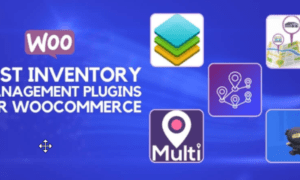Discover expert strategies for maximizing efficiency and cost-effectiveness in government fleet management services. Unlock success today!
Government fleet management services play a vital role in the seamless operation of various government departments and agencies. From law enforcement to public transportation, these services are essential for timely and cost-effective service delivery to the public. But how can government agencies ensure optimal performance and efficiency in their fleet management services?
Importance of Efficient Government Fleet Management Services
Efficient government fleet management services are crucial for ensuring operational effectiveness and cost savings in federal government operations. By optimizing vehicle usage, maintaining a well-organized fleet, and monitoring driver behavior, government agencies can enhance operational efficiency while reducing environmental impact. This not only improves service delivery but also boosts public trust and accountability through transparent reporting and responsible resource utilization.
Strategies for Streamlining Government Fleet Management Operations
To streamline federal government fleet management operations, agencies can implement various measures to enhance performance and overcome challenges. By adopting strategies like centralized vehicle tracking, regular maintenance, driver training, and alternative fuels utilization, government fleets can optimize their services effectively.
Real-life examples showcasing successful implementation of these strategies can demonstrate their effectiveness in improving fleet management operations. For instance, a government agency could share how implementing a centralized vehicle tracking system led to significant fuel savings and improved response times during emergency services.
Centralized Vehicle Tracking System:
Implementing advanced GPS tracking technology allows real-time monitoring of vehicle locations and performance metrics, aiding in optimizing routes and reducing fuel consumption.
Regular Vehicle Maintenance:
Establishing a routine maintenance schedule ensures the longevity and reliability of government vehicles, preventing breakdowns and optimizing fleet efficiency.
Driver Training and Monitoring:
Providing comprehensive training to drivers and monitoring their behavior can improve safety, fuel efficiency, and promote responsible driving habits.
Utilization of Alternative Fuels:
Exploring alternative fuel options can reduce carbon emissions, lower fuel costs, and align with environmental sustainability goals.
Key Challenges in Government Fleet Management Services
Despite the benefits, government agencies face challenges such as budget constraints, compliance issues, data security concerns, and fleet optimization. Addressing these challenges is crucial for enhancing fleet management government services and ensuring operational success.
Integrating specific data or statistics to support the benefits of efficient fleet management can provide valuable insights into the impact of these strategies. For example, citing statistics on cost savings achieved through optimized vehicle maintenance can highlight the financial benefits of efficient fleet management.
Budget Constraints:
Limited funding often hinders fleet modernization and technology adoption, requiring agencies to find cost-effective solutions while maintaining service quality.
Compliance and Regulation:
Adhering to strict regulations while balancing operational needs can be complex, requiring careful navigation to ensure compliance.
Data Security and Privacy:
Safeguarding sensitive information related to fleet management is essential to prevent unauthorized access and breaches.
Fleet Optimization and Right-Sizing:
Determining the optimal fleet size and vehicle types to meet operational demands within budget constraints poses a challenge that requires strategic planning.
Innovations in Technology for Government Fleet Management
Advancements in technology have transformed federal government fleet management, offering solutions to enhance efficiency, safety, and sustainability. Leveraging technologies like telematics systems, fleet management software, autonomous vehicles, and predictive analytics can significantly improve fleet operations.
Including insights or quotes from industry experts can provide additional credibility and expertise to the content. An expert opinion on the benefits of autonomous vehicles in government fleets could offer valuable perspective on the future of fleet management.
Telematics Systems:
Real-time data on vehicle performance and driver behavior can optimize routes, reduce fuel consumption, and enhance safety.
Fleet Management Software:
Specialized software solutions streamline administrative tasks, improve communication, and increase operational efficiency.
Autonomous Vehicles:
Self-driving technology can enhance safety, optimize routes, and improve fleet utilization, leading to cost savings and better service delivery.
Predictive Analytics:
Forecasting maintenance needs and optimizing fleet performance through data analysis can prevent costly breakdowns and improve efficiency.
Best Practices for Enhancing Government Fleet Management Services
Incorporating best practices is essential for achieving optimal performance in government fleet management services. Strategies like regular performance evaluation, collaborative partnerships, environmental sustainability initiatives, and continuous training can elevate fleet management capabilities.
Offering insights into potential future trends or developments in government fleet management can provide a forward-looking perspective on the industry. Predicting the integration of AI-driven analytics tools for predictive maintenance could offer valuable insights into upcoming trends.
Regular Performance Evaluation:
Assessing fleet performance metrics enables continuous improvement and informed decision-making for enhanced efficiency.
Collaborative Partnerships:
Partnering with industry experts fosters innovation, knowledge sharing, and access to specialized expertise.
Environmental Sustainability Initiatives:
Promoting eco-friendly practices aligns with sustainability goals and demonstrates a commitment to responsible fleet management.
Continuous Training and Development:
Investing in ongoing training ensures employees remain up-to-date on best practices, safety regulations, and technological advancements.
In conclusion, optimizing government fleet management services requires a comprehensive approach that integrates strategic planning, technological innovation, and best practices. By prioritizing efficiency, safety, compliance, and sustainability, government agencies can enhance their fleet operations to deliver superior services while maximizing resources and minimizing costs. Embracing advancements in technology, fostering collaborative partnerships, and investing in employee development are key components of successful fleet management in the public sector. By adapting to evolving trends and challenges, government fleets can achieve long-term success in serving their communities.



































